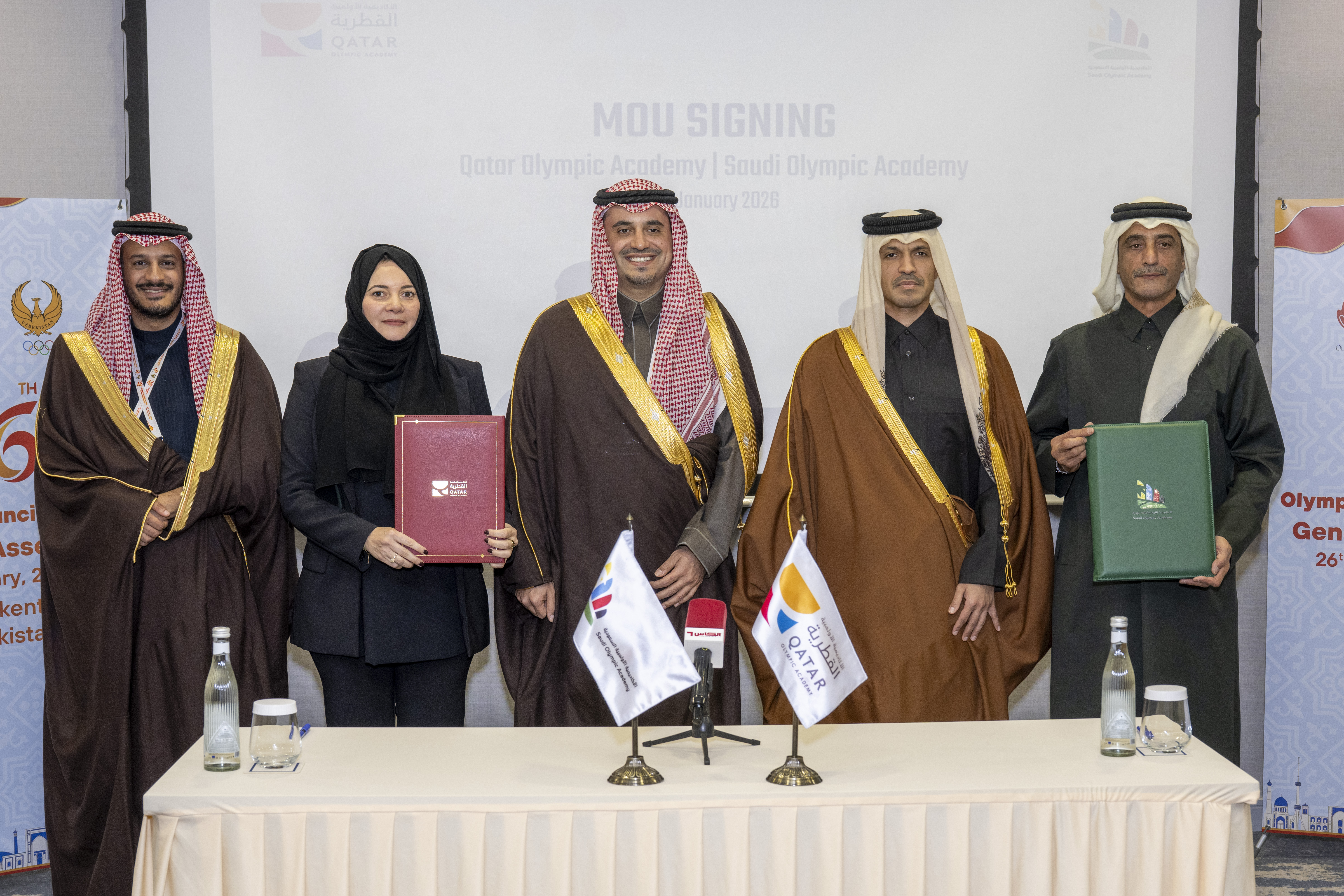Doha:
As part of a series of sports management programs accredited by the International Olympic Committee and held by the Qatar Olympic Academy periodically throughout the year, the Academy concluded the course of the principles of the Olympic movement in the sports system "Management 1", which was organized in cooperation with the Olympic solidarity in the International Olympic Committee, as this course is the first qualifying course for the diploma program in the management of sports and Olympic institutions held by the Academy for the thirteenth year, which witnesses a large turnout of students interested in administrative work in The sports field, both from inside and outside the State of Qatar, this program has graduated many sports leaders in the region in general and in the Gulf Cooperation Council in particular.
This course lasted for five days during the period from the tenth to the fourteenth of September, with the participation of more than thirty students from inside and outside the State of Qatar, who belong to many sports and administrative disciplines.
The course was presented by Mr. Hisham Al-Adwani, Vice President of the Oman School Sports Federation, Director of the Sports Management Diploma Program at the International Olympic Committee, and the International Lecturer in Sports Management Science accredited by the International Olympic Committee, who held many positions in the field of administrative work in Omani sports.
At the beginning of the program, Al-Adwani talked about the concepts of sports management, which is defined as the art of coordinating the elements of work and sports product in sports bodies and directing it in organized ways in order to achieve these bodies and direct all efforts within the sports body to achieve its goals, as the goals are also required to be determined in sports management, but there are other important elements that represent the pillars of any successful sports administrative work.
He also talked about the establishment of the Olympic movement and the modern Olympic Games (Olympic history), where the organization of the ancient Olympic Games began in the city of Olympia, Greece in the eighth century BC until the fifth century AD, and then the organization of the modern Summer Olympic Games, which are in their current form, began in 1896 at the initiative of the Frenchman Pierre de Coubertin, President of the International Olympic Committee and founder of the modern Olympic movement, where 241 athletes from 14 countries competed in nine games participated in that session. and 43 competitions.
The Games were interrupted during the First World War as well as during the Second World War, and then developed during the twentieth century with the establishment of the Winter Olympics for Snow Sports, the Paralympic Games, and the Olympic Games for young athletes.
More news

Qatar Olympic Academy Celebrates Graduation of Postgraduate Program Participants
Doha – February 17, 2026: Under the patronage of His Excellency Sheikh Joaan bin Hamad Al Thani, President of the Qatar Olympic Committee and Chairman of the Qatar Olympic Academy, the Academy celebrated this morning the graduation of students from its postgraduate programs at the headquarters of the Qatar Olympic Committee.

Qatar Olympic Academy Concludes Course on “Physical Activity and Autism”
Doha – February 2026: The Qatar Olympic Academy has concluded its five-day course on “Physical Activity and Autism”, held from February 1 to 5 at the Academy’s headquarters. The program witnessed wide participation of more than forty male and female trainees from inside and outside Qatar, representing diverse professional and academic fields related to physical education, sports training, special education, and the humanities, in addition to a number of parents of children with Autism Spectrum Disorder (ASD).

Qatari Olympic Academy Signs Memorandum of Understanding with Saudi Olympic Academy
Tashkent - Uzbekistan – January 26, 2026: The 46th Asian Olympic Council meeting in Tashkent, Uzbekistan, witnessed the signing of an important memorandum of understanding between the Qatari Olympic Academy and the Saudi Olympic Academy, in a step that enhances regional and Gulf sports cooperation. The agreement, signed by the Qatari Olympic Academy with the Saudi Olympic Academy, aims to strengthen cooperation in the field of developing sports training cadres.

